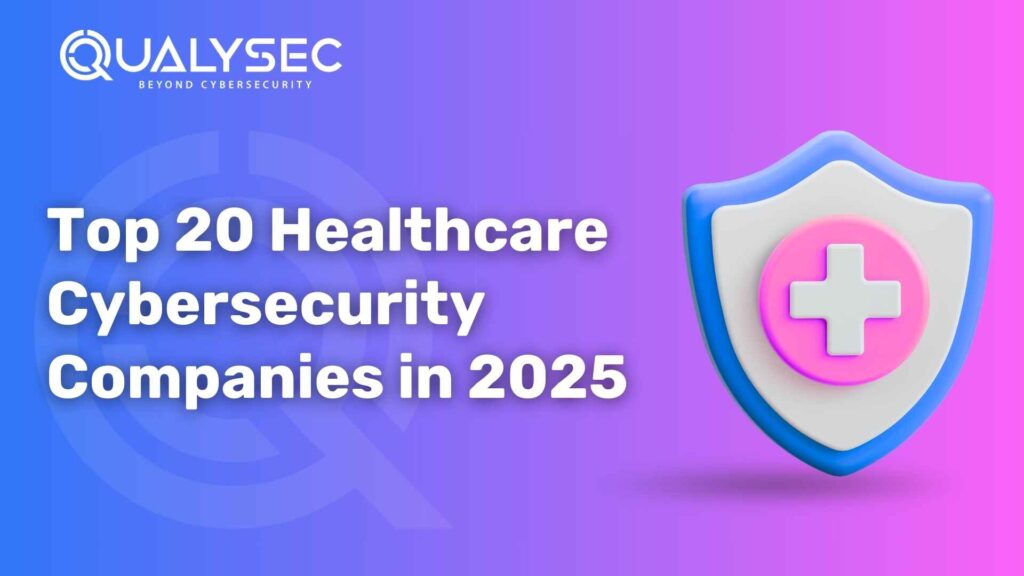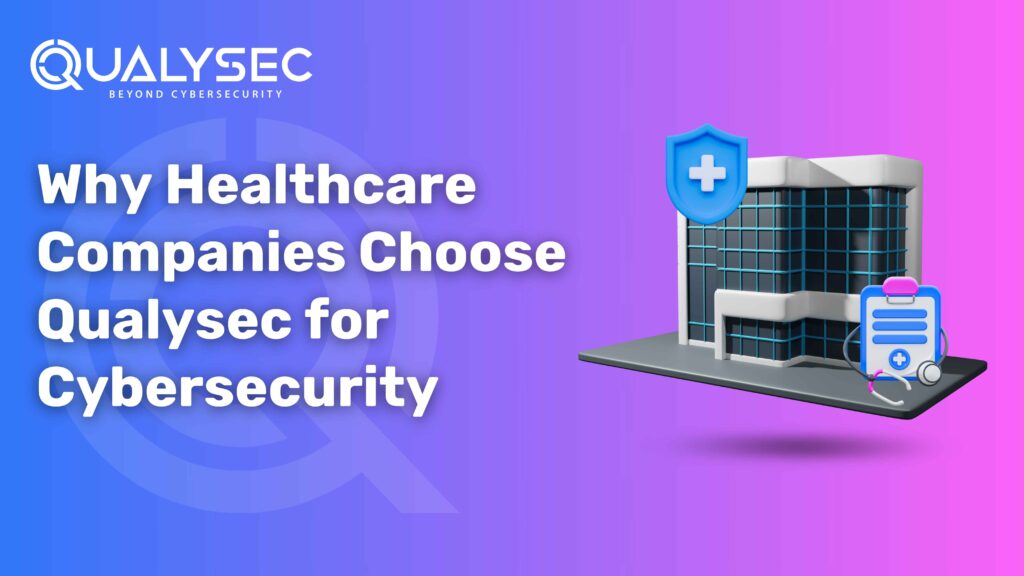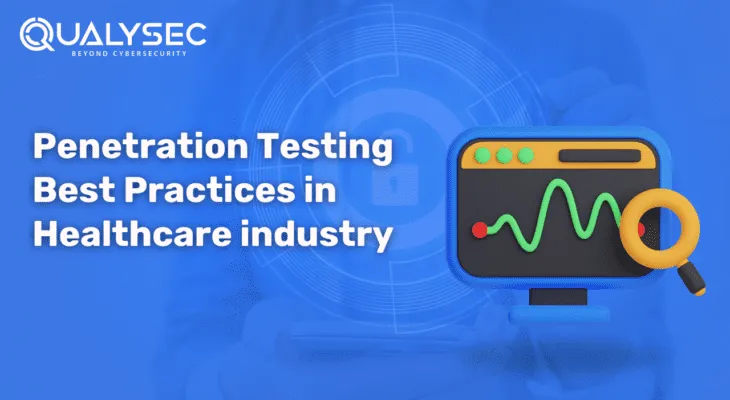Top 20 Healthcare Cybersecurity Companies in 2025
As healthcare technology continues to grow, new concerns are emerging about patient safety, data protection, and the ease of medical device use. That’s why hospitals, healthcare companies, and policymakers need to be aware of the risks and know how to handle them. In this blog, we’ll look at the top healthcare cybersecurity companies in 2025, the risks associated with modern healthcare technologies, and what to consider when choosing the right cybersecurity company. The Risks of AI in Healthcare Artificial Intelligence (AI) is now used in diagnosis and treatment planning. It helps doctors analyze large patient data sets and find patterns to support better decisions. But AI isn’t perfect. What can go wrong? How to reduce these risks: What to Look for in a Healthcare Cybersecurity Company Working with a good cybersecurity company can protect your data and devices. But not all companies are the same. Here’s what to look for: Must-haves: Choosing the right cybersecurity partner can save time, reduce risk, and ensure that healthcare technology is safe for everyone, from hospitals to home care. List of Healthcare Cybersecurity Companies 1. Qualysec Qualysec is a top healthcare cybersecurity solutions provider that offers end-to-end security services, such as penetration testing, vulnerability assessment, and risk management, to secure patient information and healthcare systems. Key Features: Why Qualysec: With an emphasis on proactive threat detection and compliance, Qualysec is a market leader in keeping healthcare organizations informed about the latest cyber threats. Talk to our Cybersecurity Expert to discuss your specific needs and how we can help your business. Schedule a Call 2. Palo Alto Networks Palo Alto Networks provides innovative cybersecurity solutions to safeguard healthcare data, delivering AI-powered threat detection and vulnerability management for healthcare companies. Key Features: AI-powered threat detection Zero-trust network security Automated vulnerability scanning Why Palo Alto Networks: They are renowned for their innovative threat prevention and compliance automation, securing healthcare networks against new and emerging threats. 3. Fortinet Fortinet provides healthcare with next-generation firewalls and secure SD-WAN, providing strong data protection in physical and virtual environments. Key Features: Next-generation firewall security SD-WAN for secure remote access Secure email gateways Why Fortinet: Fortinet solutions provide scalable, real-time protection with built-in threat intelligence, thereby suitable for large healthcare networks. 4. Check Point Software Technologies Check Point offers healthcare organizations end-to-end security, protecting networks, endpoints, mobile devices, and cloud infrastructure. Key Features: Unified threat management Cloud security solutions 24/7 threat monitoring Why Choose Checkpoint: Recognized for its deep integration and ongoing innovation, Check Point offers agile and scalable solutions designed for healthcare. 5. CrowdStrike CrowdStrike is a cloud-born endpoint security specialist, offering advanced malware protection and incident response to healthcare providers. Key Features: Endpoint protection & EDR Managed threat hunting Cloud security solutions Why CrowdStrike: Their Falcon platform is well-known for its speed and precision in detecting cyber threats, especially for healthcare environments. 6. IBM Security IBM Security provides end-to-end cybersecurity solutions, including threat intelligence, data protection, and incident response, specifically tailored to healthcare. Key Features: AI-powered security analytics Data encryption & compliance Security automation for healthcare Why IBM Security: IBM’s international cybersecurity knowledge and focus on the healthcare industry make it a trusted partner in addressing complex cyber risks. 7. Cisco Systems Cisco provides network security solutions with robust protection for healthcare organizations, including secure remote worker access and cloud-integrated security. Key Features: Network security & VPN Endpoint protection Secure access solutions Why Cisco: With a heavy emphasis on secure networking and remote access solutions, Cisco assists healthcare organizations in managing complex networks securely. 8. Trend Micro Trend Micro offers cloud security, endpoint protection, and threat intelligence to healthcare organizations to protect sensitive patient information and systems. Key Features: Endpoint and cloud security AI-powered threat detection Incident response capabilities Why Trend Micro: With its keen emphasis on cutting-edge threat intelligence and cloud protection, Trend Micro offers imperative safeguarding to healthcare organizations handling sensitive information. 9. FireEye FireEye is most famous for its cutting-edge threat protection and incident response capabilities. It specializes in defending healthcare organizations from cyberattacks and data breaches. Key Features: Threat intelligence services Incident response & forensics Cloud security protection Why FireEye: FireEye’s proactive threat hunting and advanced forensic capabilities make it a strong recommendation for healthcare organizations requiring real-time protection and post-breach analysis. 10. Sophos Sophos provides next-generation endpoint protection, advanced malware detection, and threat intelligence services specifically designed for healthcare organizations. Key Features: Endpoint and network protection AI-based threat detection Data loss prevention Why Sophos: Sophos is easy and affordable, providing high-quality cybersecurity for healthcare institutions at a competitive price. 11. McAfee Enterprise McAfee provides cloud-native threat intelligence and security for healthcare, with strong endpoint protection and data loss prevention (DLP). Key Features: Endpoint protection Data encryption & DLP Cloud-native threat detection Why McAfee: Ideal for healthcare organizations seeking scalable, compliance-based security solutions with centralized management. 12. Imperva Imperva provides data-centric security solutions, focusing on application security, database protection, and API security in healthcare. Key Features: Web application firewall (WAF) Database monitoring API security Why Imperva: Imperva’s real-time data protection safeguards HIPAA compliance and guards against data breaches in healthcare environments. 13. Cybereason Cybereason pioneers next-gen endpoint protection and ransomware prevention powered by AI-based threat detection specifically optimized for high-risk industries like healthcare. Key Features: AI-driven endpoint detection & response (EDR) Anti-ransomware Threat hunting tools Why Cybereason: Optimized for hospitals and labs searching for AI-enabled threat visibility and accelerated response capability. 14. Arctic Wolf Arctic Wolf delivers 24/7 managed detection and response (MDR) customized to healthcare organizations requiring real-time threat monitoring and remediation. Key Features: Managed detection and response SOC-as-a-Service Threat intelligence Why Arctic Wolf: Their concierge security model allows smaller hospitals and clinics to improve security posture without building internal teams. 15. Rapid7 Rapid7 offers HIPAA compliance assistance to healthcare via vulnerability management and SIEM (Security Information and Event Management) solutions. Key Features: Vulnerability management SIEM & UEBA Penetration testing Why Rapid7: Extremely effective for






